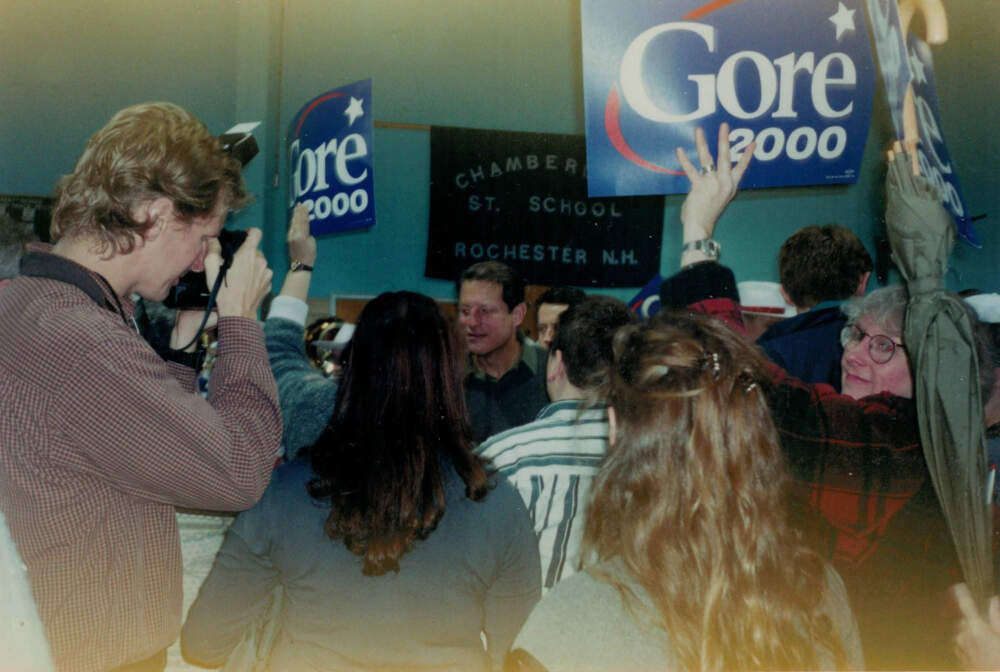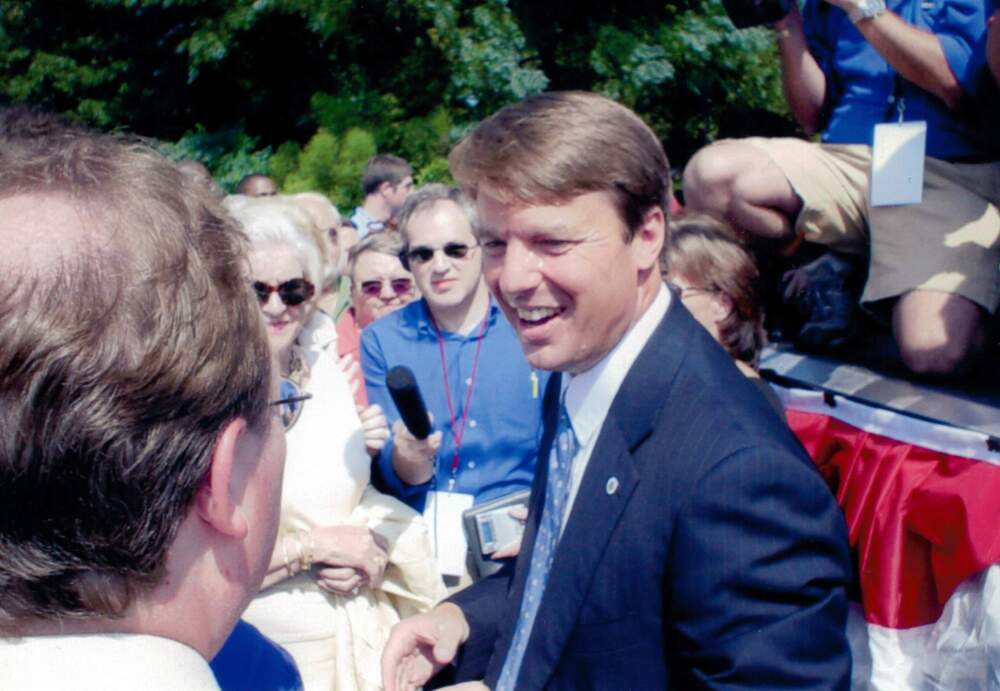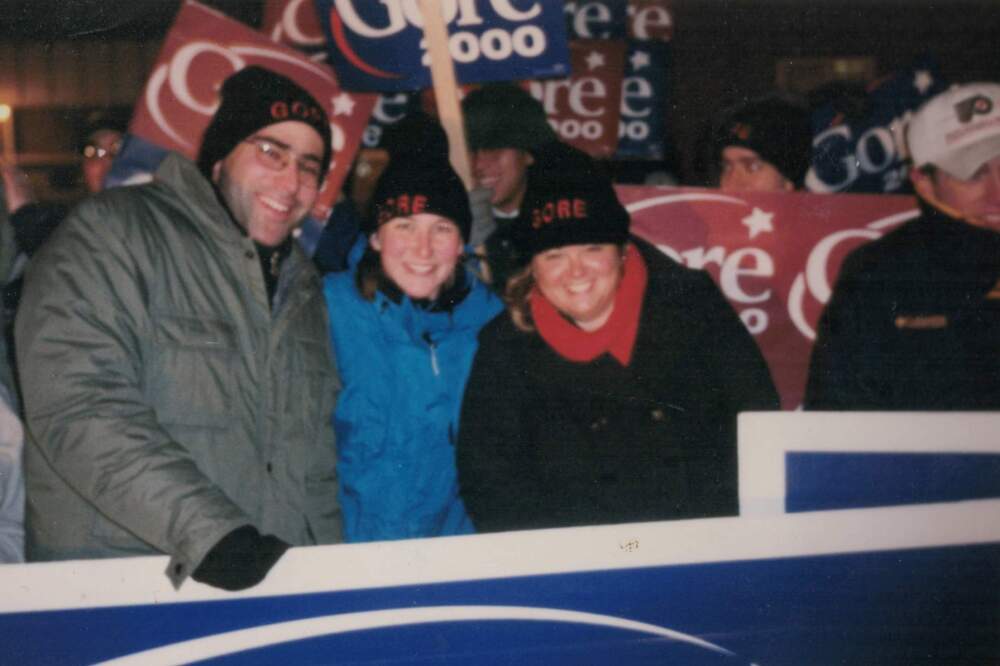Advertisement
Commentary
New Hampshire isn't perfect. But its primary should still be first

Nearly 25 years ago I drove to New Hampshire from my hometown in North Carolina to work as a field organizer for Al Gore’s presidential campaign. My first task? Buy a real coat. I worked crazy hours, got paid about $350 a week, lived in a supporter’s guest bedroom — and I felt like the luckiest person alive. I got to see the vice president, and his opponent, former Sen. Bill Bradley (D-NJ), up close in unscripted and unproduced public situations.
Granite Staters take their job of hosting the first in the nation primary very seriously. The New Hampshire primary is unique in what it demands of candidates. Even back then, presidential campaigns relied heavily on large public rallies and speeches, but when polls showed Gore tied with Bradley in New Hampshire, our campaign knew he would have to fight for the state and personally engage with New Hampshire voters in the way they demand — small, public, town-hall style meetings. He dug in, met voters in every region of the state, and eked out a victory that finished Sen. Bradley’s presidential aspirations.
I returned to New Hampshire in 2003 to help my home state Sen. John Edwards’ presidential campaign. At that time, more people knew who John Edwards the psychic was than John Edwards the presidential candidate. He was a well-coiffed candidate who won over voters with his silver tongue, remember his “two Americas” speech? (Of course, Edwards is now remembered as the smarmy fellow with expensive haircuts who cheated on his cancer-stricken wife and let a staffer clumsily attempt to claim parentage of his child.) Desperate for voters’ attention, our campaign resorted to holding events in public parks with free food — hot dog carts worked well — to attract enough foot traffic to generate a crowd large enough to constitute an audience.

These humbling experiences are valuable — for the candidates and the voters. They force candidates to engage with voters, answer questions that aren’t prescreened, and deal with moments that reveal their humanity (or not).
During my time in New Hampshire, I watched Sen. John Kerry react with kindness when a child spilled a cherry slushie on his leather loafers during a July Fourth parade. I waited in line for the bathroom at a Dunkin Donuts with Hadassah Lieberman, who ushered a mom waiting behind us with a toddler in ahead of her. I saw voters challenge candidates on their positions for the Patriot Act, the war in Iraq and Vice President Gore’s claim to have invented the internet. New Hampshire voters don’t hold back.
You can also tell that New Hampshirites take their job seriously because they routinely show up at the polls in impressive numbers. Despite being one of the hardest states to cast a vote in — the state’s identification law, and lack of early voting and mail-in voting options, make it relatively difficult to participate. Nevertheless, New Hampshire voters turn out at some of the highest rates in the country. Turnout in their presidential primary contest routinely breaks records, and engages far more people than the Iowa caucus, despite the state having a much smaller population.
Unless we want the presidential primary to devolve into a contest solely fought on television, preserving New Hampshire’s status as first in the nation is essential.
The New Hampshire presidential primary is not a perfect contest. It is a predominantly white state in an overwhelmingly blue region of the country. Those factors undoubtedly contributed to President Joe Biden and the DNC withholding their support from New Hampshire’s plan to hold the first-in-the-nation primary election date.
While no individual state in America accurately reflects the breadth of diversity in our nation, it is not OK that both the first caucus and primary in the presidential nomination contests are held in overwhelmingly white states.
To address this issue — and add much needed diversity to who influences early stages of the nominating process — the DNC and the White House initiated some big changes. South Carolina, a more diverse (and importantly, more Biden friendly) state, is the first official primary for Democrats this year. The DNC also moved Nevada’s caucus earlier in the calendar. Its explosive population growth suggests it may make more sense for Nevada, instead of Iowa, to hold the first-in-the-nation caucus.

Where does this leave New Hampshire? The state kept its first in the nation primary date — as required by its state law — and is proceeding with its primary tomorrow, despite the consequences that may await their delegates to the national convention. And President Biden isn’t even on the ballot.
New Hampshire Democrats know that to preserve the state’s importance as the first presidential primary election, their election results must reflect the views of the Democratic electorate. Most New Hampshire Democrats undoubtedly prefer President Biden to fringe candidates Marianne Williamson and Dean Phillips, despite his lack of enthusiasm for the state’s primary date. A massive write-in campaign for the president has commenced, imploring voters to write in Biden’s name on the ballot. Winning write-in campaigns are rare, but not unheard of. Sen. Lisa Murkowski (R-AK) prevailed in 2010, and Rep. Charlie Wilson (D-OH) served two terms in Congress after being elected through a write in campaign in 2006.
Unless we want the presidential primary to devolve into a contest solely fought on television, preserving New Hampshire’s status as first in the nation is essential. Over and over, New Hampshire voters have demonstrated how seriously they take the process. Along the way, they’ve ensured that presidential candidates are required to answer to real, live voters and not just rely on teleprompters and pundits.
It’s true that there’s low enthusiasm for President Biden among Democratic party activists, but I bet New Hampshire Democrats are going to show up at the polls on Tuesday and once again make history — this time by heralding a successful write in campaign in a presidential primary.
After all, New Hampshire voters don’t hold back.
